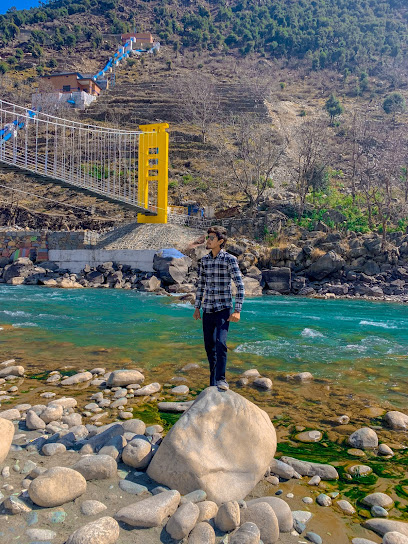
Explore the Rich Heritage at Kalasha Museum
Discover the essence of the Kalasha culture at Kalasha Museum, a heritage site preserving centuries-old traditions and artifacts in breathtaking surroundings.
The Kalasha Museum is a vibrant testament to the unique culture of the Kalasha people, showcasing their rich heritage, traditional crafts, and historical artifacts. Nestled in the beautiful Chitral Valley, this museum offers visitors an immersive experience into the captivating customs and lifestyles of one of the world's last remaining pagan communities.
A brief summary to Kalasha Museum
- MMWJ+WWR, Brun, Kalash, Chitral, Khyber Pakhtunkhwa, PK
- Monday 9 am-4 pm
- Tuesday 9 am-4 pm
- Wednesday 9 am-4 pm
- Thursday 9 am-4 pm
- Friday 9 am-4 pm
Local tips
- Visit during the summer months for vibrant festivals and activities showcasing Kalasha traditions.
- Engage with local guides for a more in-depth understanding of the exhibits and cultural significance.
- Bring a camera to capture the stunning landscapes and colorful traditional attire of the Kalasha people.
- Make sure to check the museum's opening hours to plan your visit accordingly.
Getting There
-
Walking
If you are in the center of Chitral town, start by heading north towards the main road, which is called the Chitral-Booni Road. Walk along this road for about 1.5 kilometers until you reach the junction at the end of town. From there, take a left turn onto the Kalash Valley Road. Continue walking on this road for approximately 7 kilometers. You will pass through scenic landscapes, so take your time and enjoy the views. Keep an eye out for local shops and eateries if you need a break. Once you reach the village of Brun, look for signs directing you to the Kalasha Museum, which is located at the coordinates MMWJ+WWR. The museum is situated slightly off the main road, so ask locals if you need directions.
-
Public Transport (Local Bus)
From Chitral, locate the bus stand where local buses to the Kalash Valley depart. Board a bus heading towards the Kalash Valley, specifically asking the driver or conductor to drop you off at Brun. The bus ride may take about 30-40 minutes. Once you arrive in Brun, you can either walk or take a short local rickshaw ride to the Kalasha Museum, which is a short distance away. Again, look for signage or ask locals for the exact location using the coordinates MMWJ+WWR.
-
Bicycle Rental
If you prefer to explore on a bicycle, you can rent one in Chitral town. Start by heading north towards the Chitral-Booni Road and follow the same route as if you were walking. Cycling will allow you to cover the distance faster, and you can stop at scenic spots along the way. Once you reach Brun, follow local signs or ask for directions to the Kalasha Museum, located at MMWJ+WWR.
Discover more about Kalasha Museum
Iconic landmarks you can’t miss
Rumbur
1.0 km
Discover the serene beauty and rich cultural heritage of Rumbur Ravine in the enchanting Kalash Valley of Pakistan.
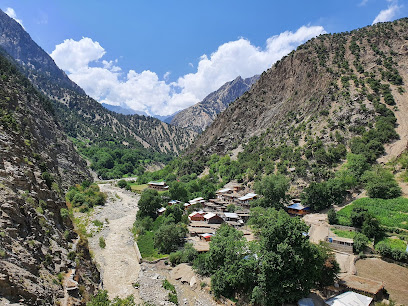
Ahmadabad Kalash Valley
1.5 km
Discover the captivating beauty and rich culture of Ahmadabad Kalash Valley, where majestic mountains meet the vibrant traditions of the Kalash people.
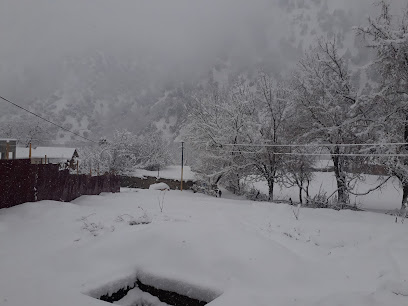
Bamboret
2.7 km
Experience the breathtaking landscapes and rich cultural heritage of Bamboret Valley in Chitral, Khyber Pakhtunkhwa, a hidden gem waiting to be explored.
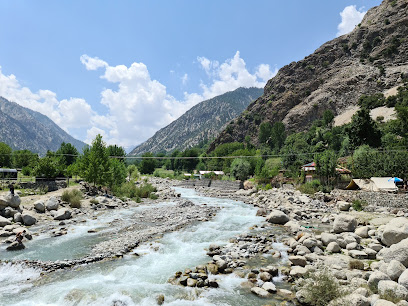
Gahirat Castle
7.4 km
Discover the enchanting Gahirat Castle in Chitrāl, where history, culture, and stunning landscapes intertwine for an unforgettable experience.

Discover Chitral
11.6 km
Discover the breathtaking landscapes and rich culture of Chitral, a hidden gem in Khyber Pakhtunkhwa, Pakistan, waiting to be explored.

Upper Chitral
11.6 km
Explore Upper Chitral, a serene retreat in Pakistan's northern mountains, where adventure meets tranquility and local culture awaits.
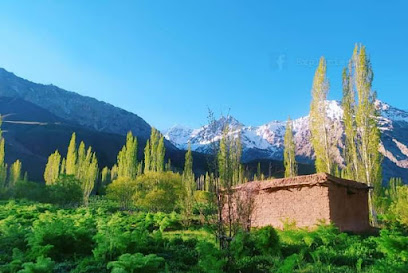
Shandur polo Ground
11.6 km
Explore Shandur Polo Ground, the world's highest polo ground, where thrilling sports and breathtaking landscapes unite in a cultural celebration.
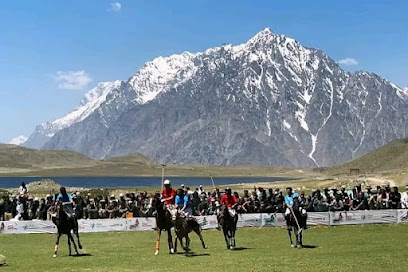
chitral musque
12.5 km
Discover the architectural beauty and spiritual significance of Chitral Mosque, a must-visit historical landmark in the breathtaking Chitral region of Pakistan.
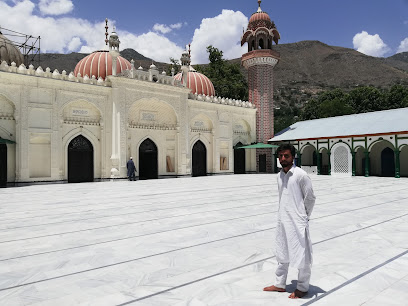
Chitral Polo ground
19.0 km
Discover the vibrant culture and exhilarating polo matches at Chitral Polo Ground, a must-visit destination in Pakistan's breathtaking Chitral Valley.
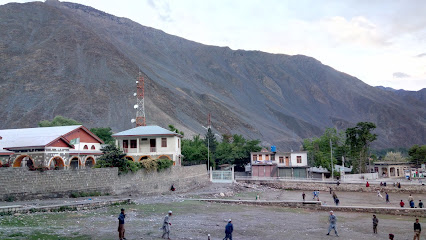
Legendary Hotel Chitral
19.2 km
Discover the tranquility and beauty of Chitral at Legendary Hotel, where comfort meets local charm amidst breathtaking mountain views.
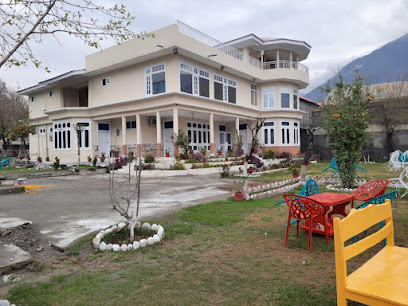
Chitral City Tower Hotel And Restaurant
20.0 km
Experience the charm of Chitral at the City Tower Hotel and Restaurant, your perfect base for exploring Khyber Pakhtunkhwa's natural beauty and rich culture.
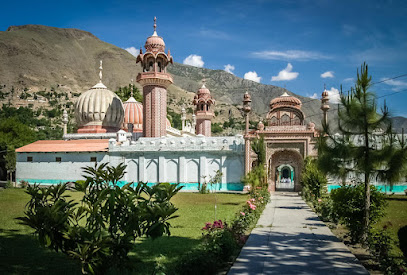
Chitral Travel Bureau
20.0 km
Explore the breathtaking landscapes and rich cultural heritage of Chitral with Chitral Travel Bureau - your ultimate travel partner in Khyber Pakhtunkhwa.

PTDC Motel Chitral
20.4 km
Discover the beauty of Chitral at PTDC Motel, your serene retreat for adventure and relaxation amidst stunning mountain landscapes.
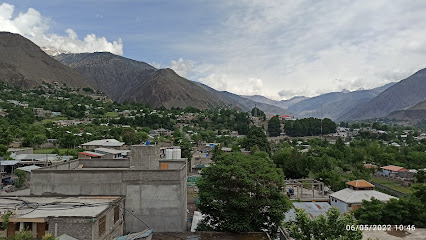
Governer Cottage
20.5 km
Discover the serene beauty of Chitrāl at Governer Cottage, a tranquil hotel surrounded by breathtaking mountains and lush landscapes, ideal for relaxing getaways.
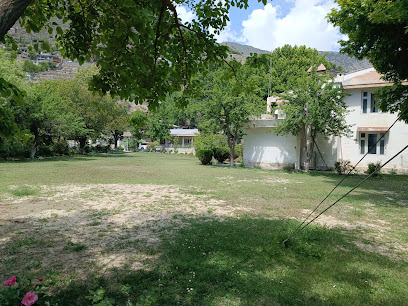
City Monument
20.7 km
Explore the City Monument in Chitrāl, a cultural landmark showcasing Pakistan's rich history amidst stunning natural beauty.
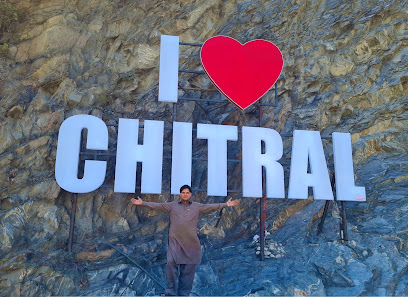
Unmissable attractions to see
KP Tourism Camping Pods Bamboret
0.1 km
Discover the serene beauty of KP Tourism Camping Pods Bamboret in the heart of Kalash Valley, where nature meets comfort in a unique glamping experience.
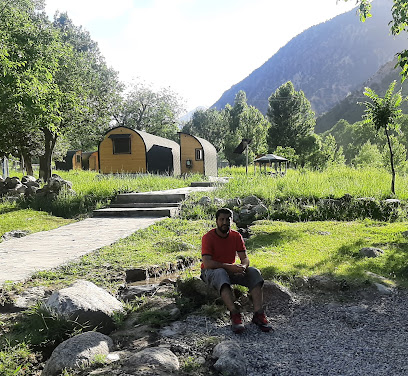
Kalash Valley
0.7 km
Explore the stunning landscapes and rich cultural tapestry of Kalash Valley, a hidden gem in Pakistan's Chitral region, known for its unique traditions and festivals.
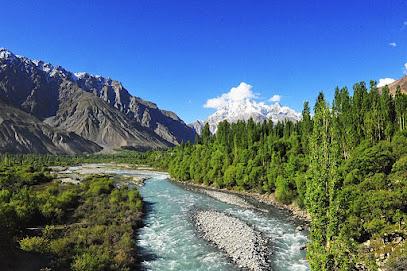
Bumburet
0.8 km
Explore Bumburet, a captivating village in Kalash Valley, where breathtaking landscapes meet vibrant culture and warm hospitality.
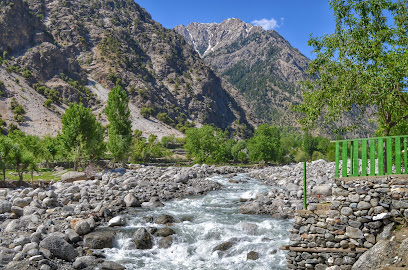
Bumbret Kalash Valley
7.2 km
Explore the breathtaking beauty and vibrant culture of Bumbret Kalash Valley, a hidden gem in Pakistan's Chitral region, where nature and tradition meet.

Imran Car Rental & Tours Chitral
9.9 km
Discover the beauty of Chitral with Imran Car Rental & Tours, your reliable partner for exploring the stunning landscapes and rich culture of northern Pakistan.
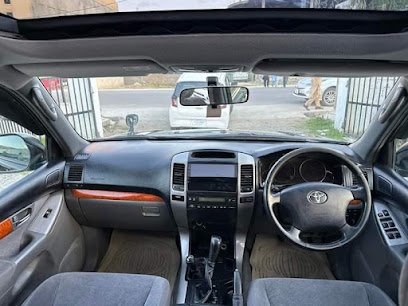
Kesu
11.5 km
Discover the enchanting beauty and rich culture of Kesu, a hidden gem in Chitral, Pakistan, perfect for adventure seekers and culture enthusiasts.
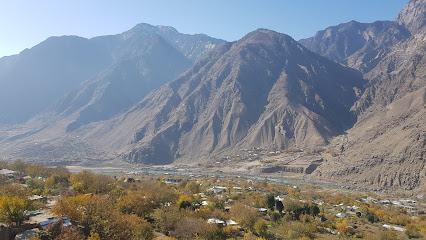
Bindi gol glacier
11.6 km
Explore the breathtaking beauty of Bindi Gol Glacier, a tranquil paradise in the heart of Chitral, Khyber Pakhtunkhwa, Pakistan.

Sher Sham
11.6 km
Discover the serene beauty and cultural richness of Sher Sham, a breathtaking tourist attraction in Chitral, Pakistan.
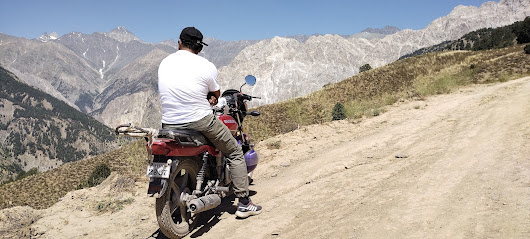
ShafiQ Sk ChitralEe
11.6 km
Discover the tranquil beauty of ShafiQ Sk ChitralEe, a serene park in Chitral, perfect for relaxation and nature exploration in Khyber Pakhtunkhwa.
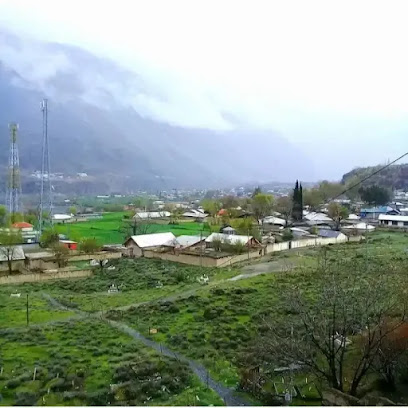
TERICH AAN
11.6 km
Explore Terich Aan, a breathtaking tourist attraction in Chitral, where majestic mountains meet rich cultural heritage and adventure awaits.

Hiking Lovers Chitral
11.6 km
Explore breathtaking trails and immerse yourself in the stunning landscapes of Hiking Lovers Chitral, a hidden gem in Pakistan's mountainous region.
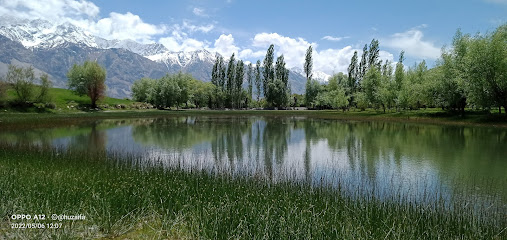
Domoon Valley
11.9 km
Explore the stunning landscapes and rich cultural heritage of Domoon Valley, a hidden treasure nestled in the heart of Chitrāl, Pakistan.
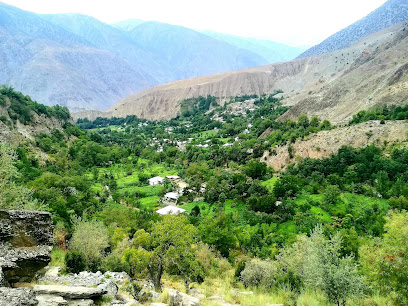
Chumurkone tek chitral pakistan
13.3 km
Experience the serene beauty and rich culture of Chumurkone, a hidden treasure in the heart of Chitral, Pakistan.
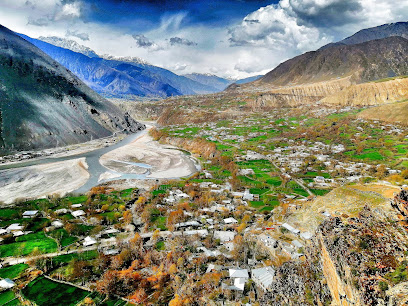
Raees Water Park and Summer Camping Station
17.4 km
Experience the thrill of Raees Water Park and Summer Camping Station, a perfect blend of adventure and relaxation in the stunning Chitral Valley.

Maaz Mounttain
17.9 km
Discover the breathtaking trails and serene beauty of Maaz Mountain, a premier hiking destination in Chitral, Khyber Pakhtunkhwa, Pakistan.
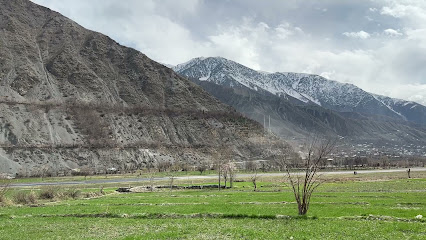
Essential places to dine
Panjab Hotel & Restaurant
0.0 km
Experience authentic Pakistani cuisine amidst breathtaking landscapes at Panjab Hotel & Restaurant in Kalash Valley.
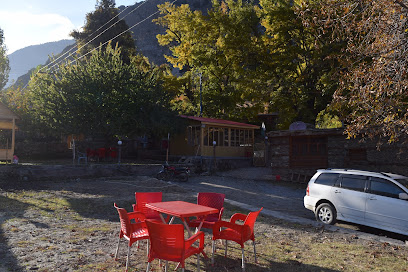
Foreigner Tourist Inn
0.2 km
Experience authentic hospitality and stunning landscapes at Foreigner Tourist Inn in Kalash Valley, Pakistan.
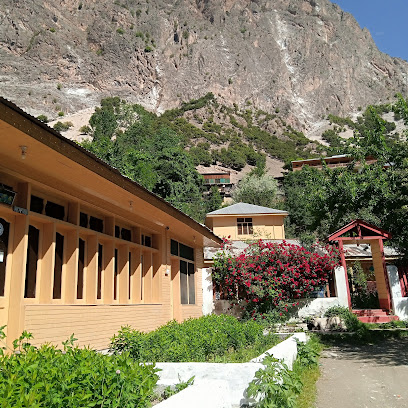
Shah Jee Restaurant
0.3 km
Experience traditional Kalashi cuisine at Shah Jee Restaurant in the scenic beauty of Chitral's Kalash Valley.
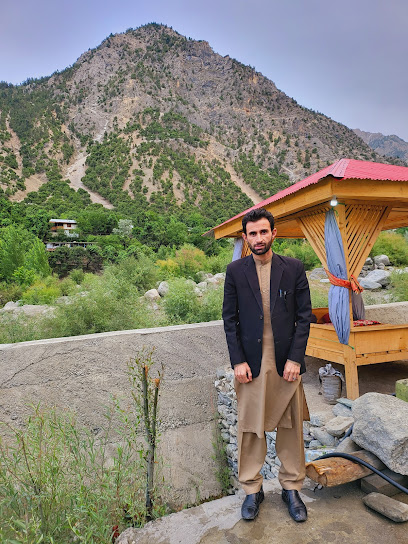
Benazir Hotel
0.7 km
Experience authentic hospitality at Benazir Hotel in Kalash Valley – a serene escape surrounded by stunning landscapes and rich cultural heritage.

Kalash Continental Hotel & Resorts
0.7 km
Discover luxury amidst nature's splendor at Kalash Continental Hotel & Resorts in breathtaking Bumborate Valley.
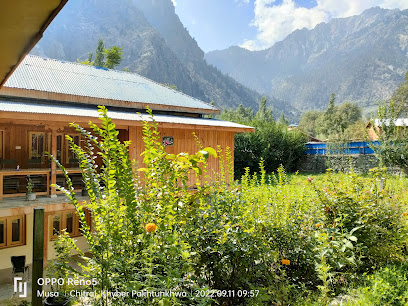
Ali palace hotel & restaurant
0.7 km
Discover unparalleled comfort at Ali Palace Hotel & Restaurant in Kalash Valley, where breathtaking views meet authentic local cuisine.
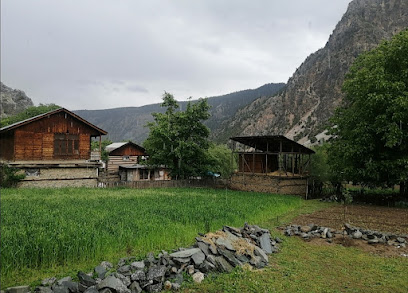
Zain Cold Drinks and Apricot Juice point
1.7 km
Experience the refreshing taste of local apricot juice at Zain Cold Drinks & Apricot Juice Point in stunning Kalash Valley.
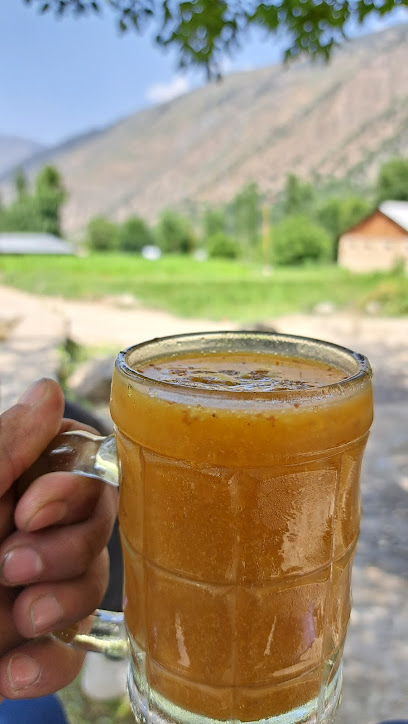
Zeed Mountain foods زید ماؤنٹین فوڈز
2.1 km
Discover authentic flavors at Zeed Mountain Foods in Kalash Valley - where every bite is a celebration of local culinary traditions.

The North Homes.pk
2.1 km
Experience unparalleled serenity at The North Homes.pk in Kalash Valley - where nature meets culture amidst breathtaking landscapes.
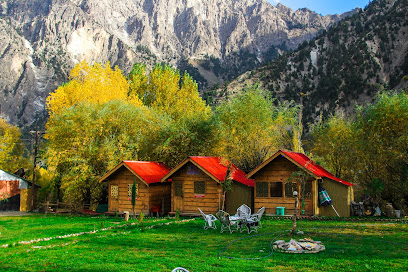
Kalash Resort & Restaurant
2.2 km
Discover tranquility and authentic flavors at Kalash Resort & Restaurant in the breathtaking Kalash Valley.
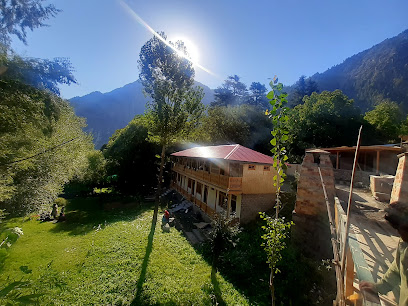
The Peace Cafe
2.2 km
Experience authentic Pakistani cuisine in a serene setting at The Peace Cafe, nestled in the picturesque Kalash Valley.
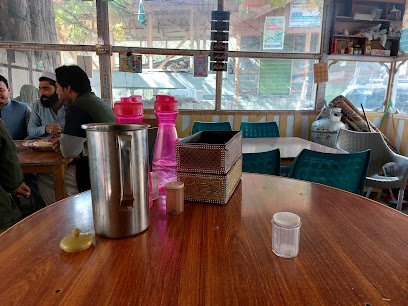
Safir khan Resturent
2.6 km
Discover authentic flavors at Safir Khan Restaurant in Bamboret Valley – a culinary haven nestled amidst stunning mountain scenery.
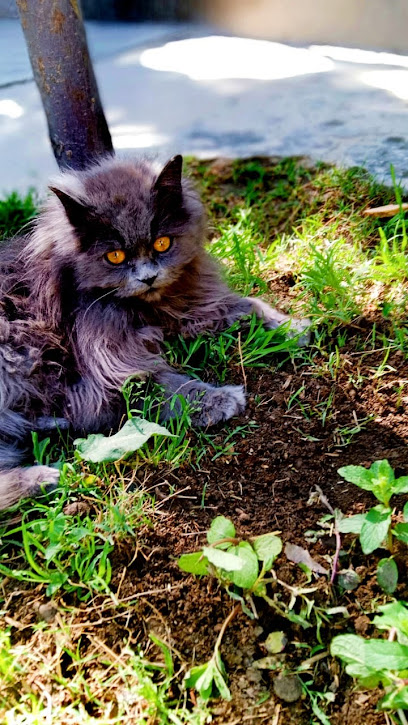
Green Hotel & restaurant
3.6 km
Discover serene accommodations and authentic local cuisine at Green Hotel & Restaurant in Kalash Valley, Pakistan.
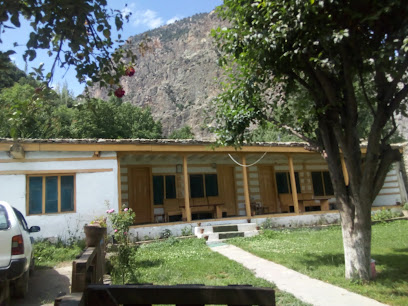
Open View Restaurant
7.0 km
Discover authentic Khyber Pakhtunkhwa flavors at Open View Restaurant in Chitral—where stunning views meet delicious cuisine.
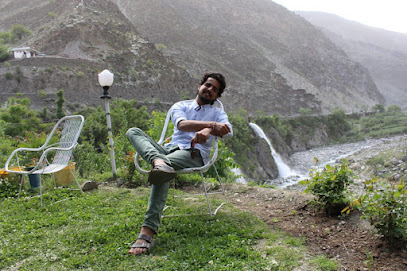
River Breeze Restaurant
7.8 km
Experience culinary bliss at River Breeze Restaurant, where exquisite flavors meet breathtaking riverside views in Khyber Pakhtunkhwa.
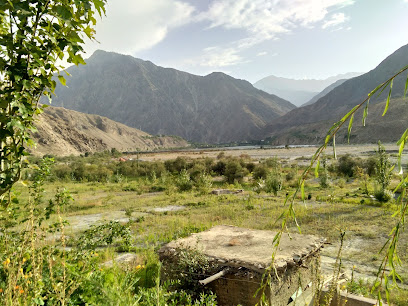
Markets, malls and hidden boutiques
Lali Gul Kalash Dress House
0.3 km
Discover the vibrant culture of the Kalash Valley at Lali Gul Kalash Dress House, your destination for traditional women's clothing and accessories.
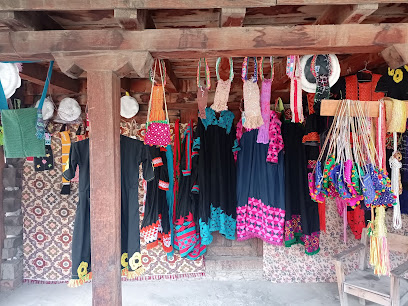
Shakar Khani
2.1 km
Explore the charm of Shakar Khani, a local home goods store in Kalash Valley, where authentic craftsmanship meets vibrant culture in Pakistan's enchanting landscape.
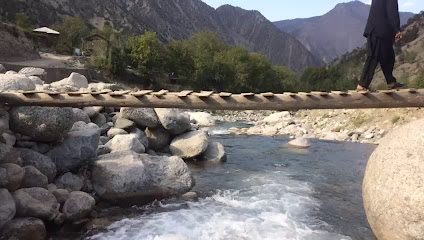
Kalasha handicraft and development network
2.9 km
Explore the vibrant culture of Chitrāl at the Kalasha Handicraft and Development Network, where tradition meets exquisite craftsmanship.
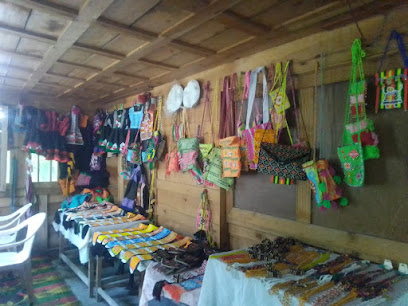
WaQas shOp
7.7 km
Explore the charm of Ayun at WaQas Shop, your gateway to unique local crafts and authentic souvenirs in Chitral Valley.

Noor Guest House & Utility Store Ayun Junali
7.7 km
Discover the serene beauty of Chitral at Noor Guest House & Utility Store, your cozy retreat in the enchanting Ayun Valley.
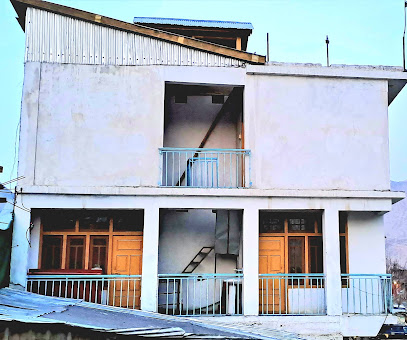
Tt Store
8.1 km
Discover authentic local shopping at Tt Store in Ayun, Chitral – a charming general store reflecting the essence of Pakistani culture.
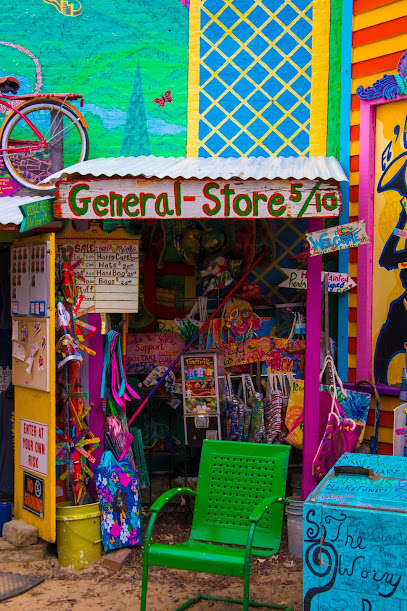
Tajamul shopping center
8.5 km
Explore the vibrant Tajamul Shopping Center in Chitrāl for unique cosmetics and local beauty treasures amidst a warm cultural atmosphere.

Umar shop
8.9 km
Discover the authentic charm of Umar Shop in Chitrāl, where local culture meets everyday essentials in a warm and inviting atmosphere.

Mustafa General Store Chitral
10.0 km
Experience authentic shopping at Mustafa General Store in Chitral, where local culture meets everyday essentials in a vibrant atmosphere.
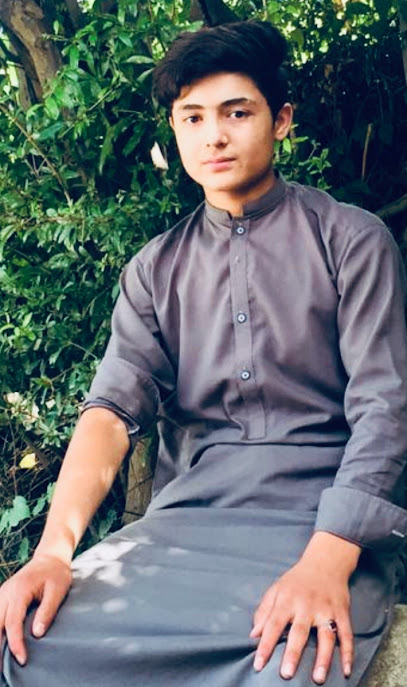
Nouman Super Store
11.1 km
Explore local treasures and flavors at Nouman Super Store in Chitrāl, the perfect stop for travelers seeking authentic Khyber Pakhtunkhwa experiences.

sadiq cloth house
11.5 km
Discover the vibrant textile heritage of Chitrāl at Sadiq Cloth House, where tradition meets modern fashion in a unique shopping experience.

Rehmat General store
11.5 km
Discover local treasures at Rehmat General Store in Chitrāl, where tradition meets convenience in the heart of Khyber Pakhtunkhwa.

Haji & Son's General Store
11.6 km
Explore Haji & Son's General Store in Chitrāl for an authentic shopping experience filled with local culture, unique crafts, and warm hospitality.

Paint shope
11.6 km
Explore the vibrant Paint Shop in Chitrāl, where local artistry and home goods come together to reflect the essence of Khyber Pakhtunkhwa's culture.

Kalasha Handicraft and Dryfruits.
11.6 km
Explore the exquisite dried fruits and unique handicrafts of Chitrāl at Kalasha Handicraft and Dryfruits, a true taste of local culture.

Essential bars & hidden hideouts
Chitral Inn Resort (Kalash Valley)
2.9 km
Experience the enchanting Kalash Valley at Chitral Inn Resort: a blend of comfort and culture in stunning natural surroundings.

Destida Bed & Breakfast Kalash Valley, Chitral
6.0 km
Discover the charm of Kalash Valley at Destida Bed & Breakfast, where comfort meets cultural immersion amidst breathtaking landscapes.
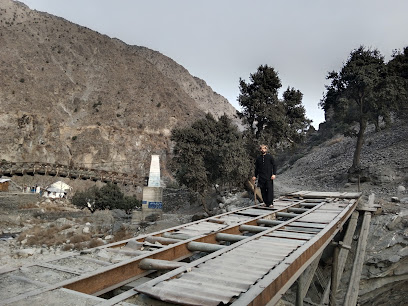
Faheem generalstore
18.3 km
Discover the charm of Drosh at Faheem Generalstore, where local culture meets a delightful shopping experience in Khyber Pakhtunkhwa.
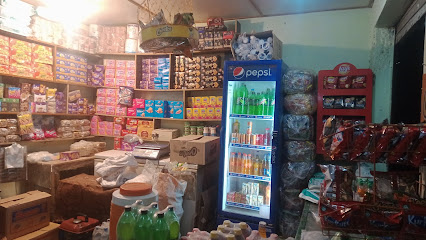
Chitral Green Guest House
19.3 km
Experience the tranquility of Chitral Green Guest House, where modern comfort meets the breathtaking beauty of Khyber Pakhtunkhwa's landscapes.
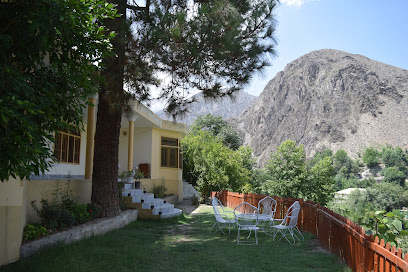
Kashmir Bakers and Sweet House
19.4 km
Discover the rich flavors of Chitrāl at Kashmir Bakers and Sweet House, where delightful pastries and traditional sweets await every visitor.
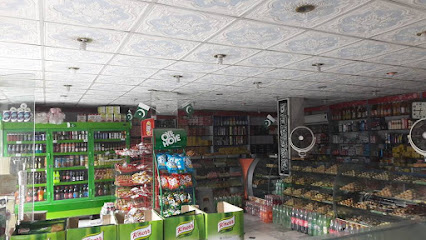
Chitral
19.5 km
Explore the enchanting flavors of Chitral, where culinary delights meet breathtaking landscapes in the heart of Khyber Pakhtunkhwa.

Pamir Riverside Inn Chitral
20.2 km
Discover tranquility and breathtaking beauty at Pamir Riverside Inn Chitral, your perfect getaway in the heart of Pakistan's stunning landscapes.

shams ur rehman furniture house
20.4 km
Experience local culture and vibrant nightlife at Shams Ur Rehman Furniture House, Chitral's unique bar blending tradition and modernity.

Nasir house ناصر ھاؤس
20.5 km
Discover the charm of Nasir House in Chitrāl, where local culture meets modern relaxation in a cozy bar atmosphere.
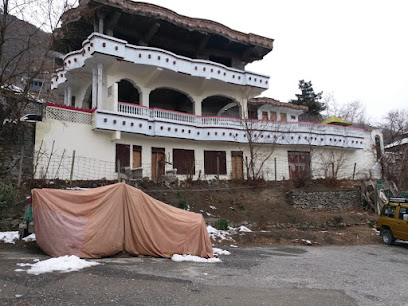
Nasir farm house kuju kpk chitral
32.6 km
Discover the serene beauty of Nasir Farm House in Chitral, where nature meets comfort in the heart of Khyber Pakhtunkhwa.

خانه ابوبکر
33.1 km
Enjoy authentic Afghan cuisine at خانه ابوبکر, a family-friendly restaurant in Peshawar, perfect for creating unforgettable dining memories.

گرما گرم سیخ
44.7 km
Explore the authentic flavors of Kunar at گرما گرم سیخ, where tradition and taste meet in a delightful dining experience.

Hujra Hotel Dir Upper Khass Dir Chitral road Qashqari Payyan ہجرہ ہوٹل
52.5 km
Discover the serene beauty of Upper Dir at Hujra Hotel, where local culture meets stunning landscapes, perfect for your next getaway.

Panjkora Hotel & Resort Kumrat
53.4 km
Experience the serene beauty of Kumrat Valley at Panjkora Hotel & Resort, a perfect blend of comfort, nature, and adventure.
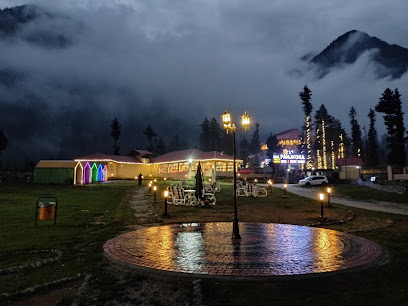
Bahader khan hotel
79.2 km
Experience the rich culinary traditions of Khyber Pakhtunkhwa at Bahader Khan Hotel, located in the scenic Booni valley.

Nightclubs & after hour spots
Sports Club GGHSS Shiaqotek Chitral L
17.4 km
Experience the vibrant sports culture of Chitral at GGHSS Shiaqotek, where fitness meets community in a beautiful natural setting.
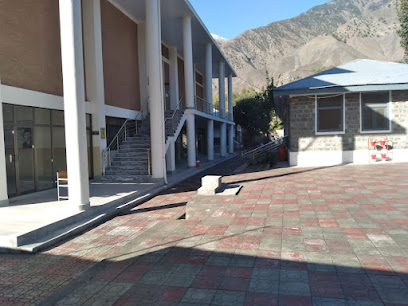
Mountain Inn
19.4 km
Discover serenity and breathtaking views at Mountain Inn, the perfect escape for travelers in Chitral, Khyber Pakhtunkhwa, Pakistan.

Chitral Press Club
19.8 km
Explore the heart of Chitral's media landscape at the Chitral Press Club, where culture, journalism, and community come together.

Tirch Mir View Hotel Chitral
20.1 km
Discover the serene beauty and warm hospitality at Tirch Mir View Hotel, your gateway to adventure in Chitral, Khyber Pakhtunkhwa.
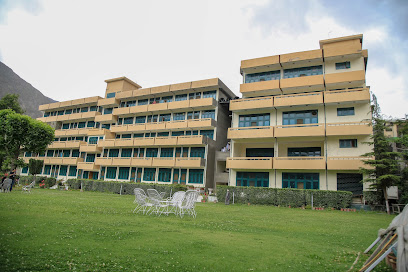
گولوغ توری، موری پائیں
40.4 km
Discover the electrifying nightlife at گولوغ توری in Chitral, where music, dance, and culture come together for an unforgettable experience.
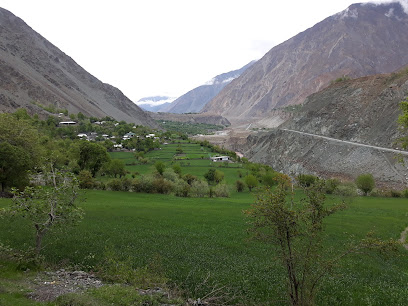
Latitude Resort
50.5 km
Experience the serenity of nature at Latitude Resort, a luxurious getaway in the stunning Kumrat Valley, Upper Dir, Khyber Pakhtunkhwa.
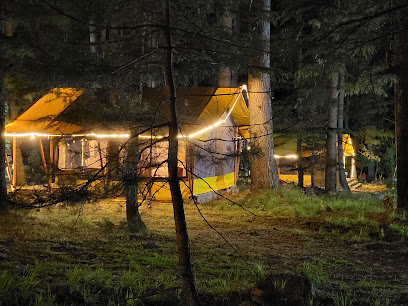
ŘĂJWAŘÀ ŐŐ7 ĶHİŻ & ŠŰŃŃÝ
55.4 km
Dive into the energetic nightlife of Sheringal at ŘĂJWAŘÀ ŐŐ7 ĶHİŻ & ŠŰŃŃÝ, where music, dance, and drinks come together for an unforgettable experience.

Bahrain Kedam Swat Pak.
95.9 km
Discover the vibrant nightlife of Bahrain Kedam Swat, where music and culture come alive in the heart of the stunning Swat Valley.
